What is Down Syndrome? Down syndrome is a condition that occurs when a baby is born with an extra chromosome. This condition typically causes mental and physical problems for the baby. Symptoms of Down syndrome range from mild to severe.
Some common physical signs of Down syndrome include:
- A flat face with an upward slant to the eye, a short neck, small ears, and a large tongue
- Tiny white spots on the iris (colored part) of the eye
- Small hands and feet
- A single crease across the palm of the hand
- Small pinky fingers that sometimes curve toward the thumb
- Poor muscle tone or loose ligaments
How Often Down Syndrome Occurs
The Centers for Disease Control estimates that each year about 6,000 babies in the United States are born with Down syndrome. In other words, over 14 of every 10,000 babies born in the United States each year is born with Down syndrome.
Developmental Problems Associated with Down Syndrome
It is important to note that although there are developmental problems associated with Down syndrome, many people with Down syndrome live happy, productive lives well into adulthood.
Some problems associated with Down syndrome may include:
- A birth defect of the heart
- Stomach problems, such as a blocked small intestine
- Celiac disease, a digestive disease that damages the small intestine so that nutrients from food are not absorbed well
- Problems with memory, concentration, and judgment, often called dementia
- Hearing problems
- Eye problems, such as cataracts or trouble seeing objects that are close by (far-sighted)
- Thyroid problems
- Skeletal problems
- IQ in the mild-to-moderate range of mental retardation
- Delayed language development
- Poor intelligibility of speech
- Feeding Problems
- Low muscle tone, and difficulties with physical coordination
Further information can be found at the National Down Syndrome Society.
How We Help
Early intervention is important for children with Down syndrome. We tend to see better treatment outcomes for those that start treatment earlier. This may be attributed to the neuroplasticity that is present in young children. Common therapies for children who have Down syndrome include speech therapy, occupational therapy, and physical therapy. However, the plan of care should always be delineated based on the child’s assessment. With consistent, expert care, these children can usually make progress.
What about the feeding problems and tongue thrust?
Most children with Down syndrome exhibit feeding difficulties and tongue thrust (a protruding tongue and open mouth posture). Through intensive feeding therapy, we have seen these symptoms improve! It is possible for a child with this condition to show a closed mouth posture much of his or her day, when given expert treatment. We have seen children progress from eating pureed foods to all solids without limitations. Treatment takes time. It is not an overnight fix. However, with dedication and commitment, these symptoms can be positively impacted.
If a child has Down syndrome, the younger a child starts treatment the better. Early intervention is crucial!
[one-half-first]
Have a Question?
[/one-half-first]
[one-half]
Ready to Go?
[/one-half]
